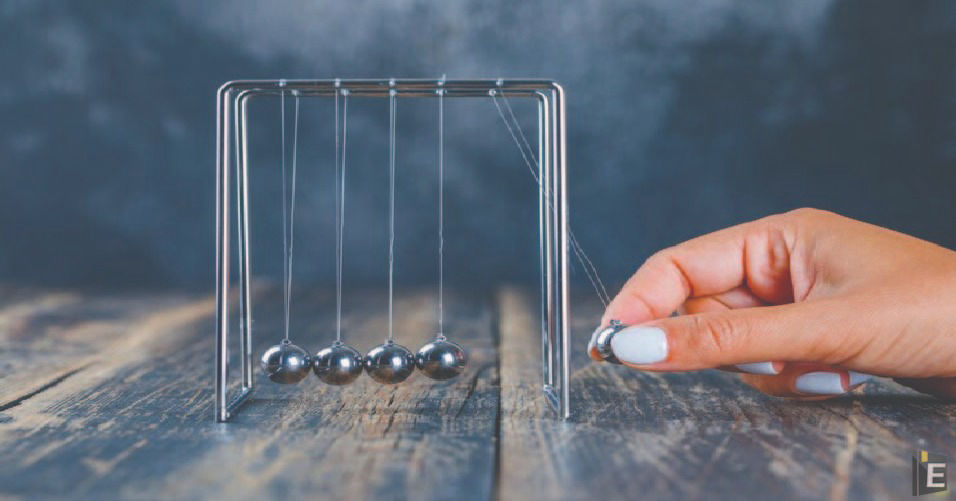Physics General Knowledge Questions for Competitive Exams

Welcome to our blog dedicated to mastering physics general knowledge questions for competitive exams! Whether you're preparing for entrance exams, or competitive tests, or simply want to deepen your understanding of physics concepts, you're in the right place. From classical mechanics to modern physics, we'll cover a wide range of subjects to help you build a strong foundation in physics. We aim to equip you with the knowledge and confidence needed to excel in your exams and beyond. So, let's dive in and explore the fascinating world of physics together!
Physics General Knowledge
In this Physics General Knowledge Questions blog, we will provide you with a concise yet comprehensive overview of essential physics topics commonly encountered in competitive exams. In the blog, you can study the latest and most important Physics GK Questions under the General Science section for upcoming competitive exams.
Also, Read Latest Current Affairs Questions 2023: Current Affairs Today
Test your knowledge and stay ahead with our General Knowledge Mock Test and Current Affairs Mock Test– a perfect way to challenge yourself and stay updated!
Physics General Knowledge Questions for Competitive Exams
Q : A potentiometer is considered a versatile and accurate device to make an electrical measurement of EMF. Why?
(A) Because the method involves a combination
(B) There are cells involved
(C) Because of potential gradients
(D) As there is no flow of current through the galvanometer
Correct Answer : D
Explanation :
A potentiometer is an accurate and versatile device to make electrical measurements of emf because the method involves a condition of no current flow through the galvanometer, the device can be used to measure potential difference, internal resistance of a cell and compare emf's of two sources. Q.
Degree of dissociation does not depend on which of the following factors?
(A) Nature of the solute
(B) Nature of the solvent
(C) Sound
(D) Concentration
Correct Answer : C
Explanation :
The Degree of dissociation does not depend on catalyst.The equivalent conductivity of 0.1M weak acid is 100 times less than that at infinite dilution.
What is the degree of dissociation for strong electrolytes?
(A) 1
(B) 0
(C) Less than 1
(D) Greater than 1
Correct Answer : A
Explanation :
Strong electrolytes have a degree of dissociation close to one, while weak electrolytes have a degree of dissociation less than one. Solvent nature: Solvents with a high dielectric constant show more dissociation. Dilution: As the solution is diluted, the degree of dissociation increases.
Polar satellites are used for high-resolution imaging of the earth’s surface because _____
(A) They have better cameras
(B) They are very high above the surface of the earth and travel slowly to gather more information
(C) They are closer to the surface of the earth and can cover vast areas very quickly
(D) They can be launched by most countries in the world
Correct Answer : C
Explanation :
Explanation: Since polar satellites orbit close to the surface of the earth, it is easier to click images of the planet's surface with greater detail. Their high orbital velocity enables them to view most of the surface strip-by-stip very quickly with which high-resolution images can be constructed.
Most waves used for communication purposes rely on geostationary satellites because _____
(A) They cannot transmit data at long distances due to curvature of the earth
(B) They are reflected by the atmosphere
(C) They are very cheap
(D) It does not occupy space on the earth’s surface
Correct Answer : A
Explanation :
Explanation: Most communication waves cannot transmit data accurately over long distances due to the curvature of the earth. They can only do so in the line of sight. However, they are not reflected by the ionosphere like radio waves and can be relayed to a wide area using geostationary satellites.
If the kinetic energy of a satellite is halved, its orbital radius becomes _____
(A) ½ times
(B) 2 times
(C) 4 times
(D) Infinity
Correct Answer : A
Explanation :
radius of its orbit will become half.
What are the conditions for gas like Carbon monoxide to obey the ideal gas laws?
(A) Low temperature and low pressure
(B) Low temperature and high pressure
(C) High temperature and low pressure
(D) High temperature and high pressure
Correct Answer : C
Explanation :
A real gas can behave as an ideal gas if volume of molecule is negligible and interaction between molecule is negligible. This will happen if number of molecule per unit volume is very small. This is only possible at high temperature and low pressure.
The observer hears a sound from the source which is moving away from the observer who is stationary. Determine the frequency of the sound
(A) It is halved
(B) It remains the same
(C) It reaches infinity
(D) It gets doubled
Correct Answer : A
Explanation :
If the observer is moving away from the source ((Figure)), the observed frequency can be found: λs=vTo−voTovTs=(v−vo)Tov(1fs)=(v−vo)(1fo)fo=fs(v−vov).
What does an electric dipole experience when it is kept in the non-uniform electric field?
(A) Only a force
(B) Only torque
(C) Force and torque both
(D) Neither force nor torque
Correct Answer : C
Explanation :
An electric dipole always experiences a torque when placed in uniform as well as non-uniform electric field. But in non-uniform electric field, dipole will also experience net force of attraction. So the electric dipole in non-uniform electric field experiences both torque and force.
The capacity of parallel plate condenser is dependent on the
(A) The separation between the plates
(B) The metal used for the construction
(C) The thickness of the plate
(D) The potential applied across the plates
Correct Answer : B
Explanation :
Therefore, the capacity of a parallel plate capacitor directly depends on the relative permittivity of dielectric material, the permittivity of space, the area of plates, and is inversely dependent on the separation between the plates.



